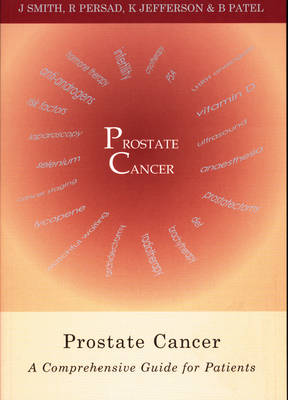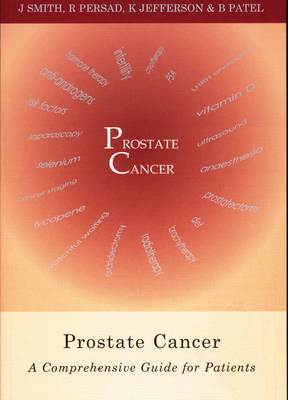
- Retrait gratuit dans votre magasin Club
- 7.000.000 titres dans notre catalogue
- Payer en toute sécurité
- Toujours un magasin près de chez vous
- Retrait gratuit dans votre magasin Club
- 7.000.000 titres dans notre catalogue
- Payer en toute sécurité
- Toujours un magasin près de chez vous
Prostate Cancer
A Comprehensive Guide for Patients
Jane Smith, Raj Persad, Kieran Jefferson, Biral PatelDescription
Although prostate cancer is rare in men before the age of 40, it may be present in 20% of men by the age of 50 and in about 80% by the age of 80. However, in many cases it does not cause any symptoms and remains clinically undetected, with death occurring due to other, unrelated, causes. Most prostate cancers are quite slow growing, although in some men - for reasons that remain unclear - they can progress more rapidly. The causes of prostate cancer are not yet understood, but it is known to have an ethnic association. There is also evidence that it has a genetic basis - men with a first-degree relative with prostate cancer being at greater than normal risk of developing the disease. This book provides up-to-date, clear explanations of what is currently known about prostate cancer. It describes the treatments that are available, as well as the different types of complementary therapies, and discusses possible risk factors and the potential role of diet in the development of the disease.
Spécifications
Parties prenantes
- Auteur(s) :
- Editeur:
Contenu
- Nombre de pages :
- 112
- Langue:
- Anglais
Caractéristiques
- EAN:
- 9781903378106
- Date de parution :
- 01-11-02
- Format:
- Livre broché
- Format numérique:
- Trade paperback (VS)
- Dimensions :
- 147 mm x 208 mm
- Poids :
- 249 g







